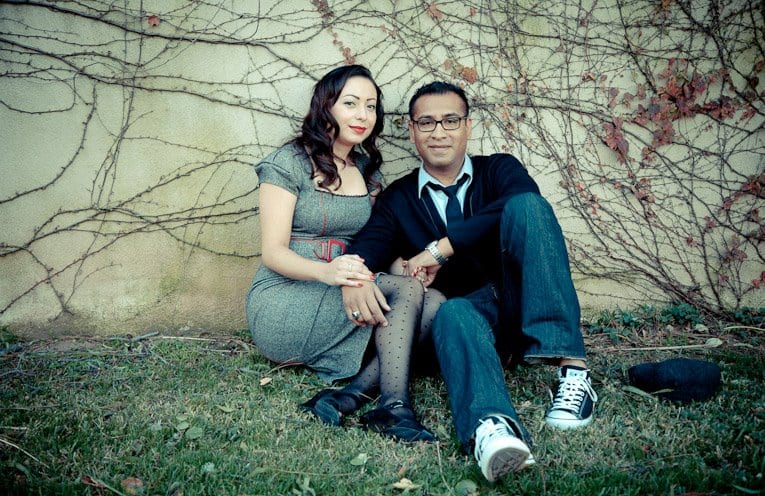The Battle over My Husband’s End-of-Life Care during His Impending Death
Mar 15, 2018 Ana Romero Juan Fernando Romero legal advocacy
This story originally appeared for La Opinion, Los Angeles; El Diario, NY; La Prensa, Miami; and La RAZA, Chicago. Links below.
In May 2015, my 35-year-old husband, Juan Fernando Romero, a seemingly healthy young man, suddenly became ill and suffered severe brain damage that left him in a permanent vegetative state.
I was pregnant with our second child. But as difficult as this situation was, the real tragedy was the ensuing 15-month legal battle over his end-of-life care, a tragedy that could have been easily prevented with a simple advance directive.
Bitter Family Dispute

Fernando’s health slowly and gravely deteriorated after his brain injury and he required 24-hour care in a nursing facility. His doctors said he had no chance for recovery. Since he had irreversibly lost his capacity for consciousness, he was unable to tell the doctors his end-of-life care preferences.
Over many months, Fernando was repeatedly rushed to the hospital because of life-threatening bouts of pneumonia, blood infections, and other conditions. Patients in a permanent vegetative state often make involuntary and unconscious movements. Once, after Fernando bit his tongue very deeply, his doctors discussed removing all his teeth.
After seeing him languish for 18 months, I made the painful decision to bring Fernando home a few weeks before Christmas for palliative care, to keep him comfortable, so he could end his life in peace, surrounded by his loved ones.
The Lawsuits
On Dec. 9, 2016, the day before I had arranged to bring Fernando home, his sister and parents filed two lawsuits sponsored by the Life Legal Defense Foundation.
The first lawsuit sought to overturn my healthcare decision-making authority as his spouse, while the second lawsuit urged the court to appoint Fernando’s sister to replace me as his healthcare proxy, so she could keep him on life support.
This ordeal reminded me of the highly-publicized Terri Schiavo case, which Life Legal Defense Foundation had helped to fund. Terri Schiavo was a young Florida woman who had been in a permanent vegetative state for 15 years when, in 2005, her parents fought a bitter legal battle challenging her husband’s decision to honor her end-of-life preferences by requesting removal of her feeding tube.
The lawsuits focused on what Fernando would have wanted, since he had not completed an advance directive. His family claimed Fernando showed signs of consciousness. But every doctor who examined Fernando, including experts who testified for both sides in the lawsuit, concluded he was permanently unconscious and could not possibly understand what anyone said to him, let alone respond to questions about what he wanted.
Fernando had made several comments to me to me before his injury, which enabled me to know what he would want. Fernando visited a close family member who suffered from profound mental incapacity, which required extreme medical intervention to keep her alive. Fernando told me he would never want to be kept alive like that.
The Ruling
My 37-year-old husband died of natural causes on June 3, 2017, despite being on life support, shortly before the trial arguments. Eight months later, in March Los Angeles Superior Court Judge Mary Thornton House ended the legal war that had raged for over a year, She ruled that as Fernando’s wife, I was in the best position to know his end-of-life care preferences. The judge also ruled that my decisions about Fernando’s end-of-life care had been consistent with his preferences and in full compliance with both Catholic doctrine and the California’s Health Care Decision Law. I am grateful to my legal team of Compassion & Choices, Davis Wright Tremaine LLP, Mark Drew and Jon B. Eisenberg.
Tragically, the judge’s decision came too late for me to honor my husband’s end-of-life care preferences. As a result of the litigation, Fernando pointlessly lingered for six months.
The Tragic Lesson
Fernando would have been heartbroken if he knew about the lawsuits that tore his families apart. But this tragedy will serve a greater purpose if it can inspire others to learn two things. First, never take your family for granted. Appreciate them and love them every day as if it might be the last. Second, to avoid confusion, a bitter family dispute, and a litigation nightmare, complete an advance directive so that your loved ones will know what your end-of-life care preferences are. Advance directives are easily found through your healthcare provider, an attorney, a local library, or on the Internet.
Ana Romero is a human resources analyst who lives with her and Fernando’s two young daughters, ages 4 and 2, in Los Angeles.


